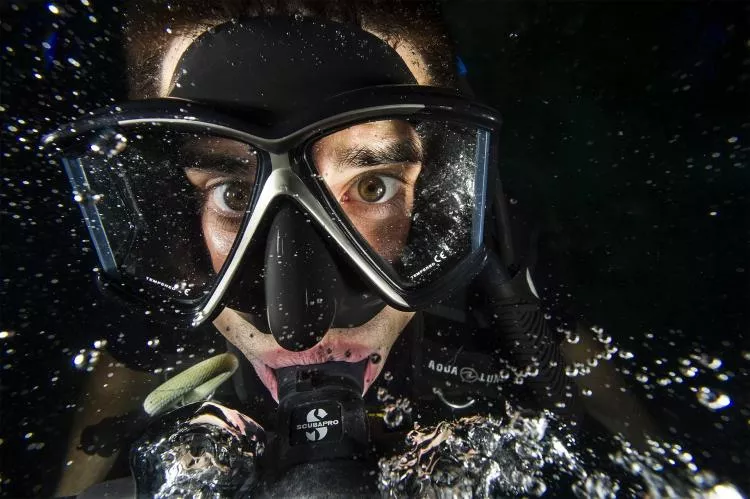
Scuba diving is one of the most unique activities that humans can participate in. This is not just because it dazzles the five senses in ways that are not usually stimulated, but because the environments required for the experience are scattered all over the world. Not only can scuba diving take participants to some of the most exotic locations on the planet, but it transports the individual into, what many others have described, as a world that is wholly other.
As Mary Frances Emmons once said, “For most people, [scuba diving] is as close to being an astronaut as you’ll ever get. It’s like leaving planet Earth behind and entering an alien world”. As exciting and inspiring as such pursuits are, however, they are not without risk, and while being versed in essential psychological skills for success may help when things go wrong, concrete actions enforce greater assurance of success and safety.
Here are some tips to mentally prepare for a dangerous scuba dive.
Dive with Other People
Many challenges in life can be overcome with the collective knowledge, skillset, and assistance that accompanies a group setting, scuba diving is not immune to this. Being that there are so many ways that things can go wrong in a sport which requires a delicate balance of various systems, a great way to ensure safety—and thus lessening the likelihood of danger—is to dive in a group.
Whether you are a first-time driver with a freshly printed certification card, or a seasoned professional the chance of something unforeseen going wrong is always present. That's why having a few other people around, ideally persons who are knowledgeable and experienced with a well developed disaster plan does much to dilute the possibility of an accident.
Dive Briefings
Every dive excursion has its own elements that make it unique amongst the plethora of other places to visit, but those safe variability contribute to the ways in which, if one is not prepared, an adventure has the ability to go wrong. Doing proper planning—or if you are going on a hosted dive, paying attention to the details of the briefing—increases the confidence and preparedness that accompanies such a feat.
Know what to expect during the dive; how is the current season's weather a contributing factor; what type of currents or animal species are present; how long will the dive typically last? These are just a few of the factors that should be considered so as to be optimally prepared.
As a bonus, taking the time to review past dives, comparing those experiences and elements to the upcoming dive will not only increase confidence levels, but hone past skills, strengthening that knowledge base for future expeditions.
Check Your Gear. Again!
While this may seem like a no-brainer, it would be a sad list to review of people (in any outdoor adventure situation) who suffered an accident for lack of being properly equipped. Being that the equipment used is the only thing keeping divers alive, glazing over the safety check can quite literally be fatal—not just for yourself, but others.
A buddy check (see point number one), which allows for a second set of eyes to review that which might have been overlooked, is a great way to counteract any shortcomings. Obviously, being able to conduct a thorough and effective safety check requires up-to-date knowledge about what and how to use the various equipment for the dive.
The Rule of Thirds
Air management is not only an important skill, but a great way to keep nerves under control when something goes off plan. The rule of thirds air supply states that a third of each diver’s air supply should be allocated for the outward journey, the return journey, and the final third as a safety reserve. Allowing for enough air that enables a slow ascent and safety stop is good practice and habit.
Additionally, this rule creates the safety reserve not just for yourself, but as a just-in-case for someone else. A good question to ask when planning a dive is, “Will you have enough air in the tank to donate to another person all the way back to the surface in an emergency situation?”


















